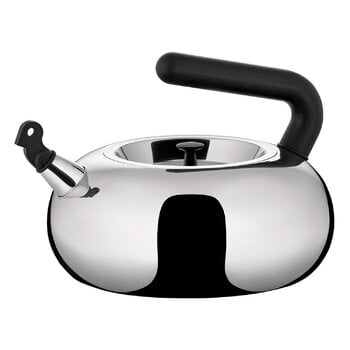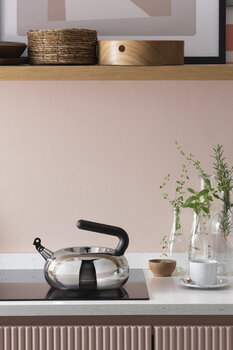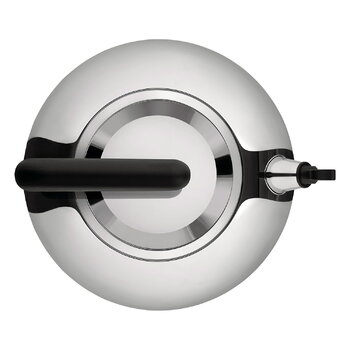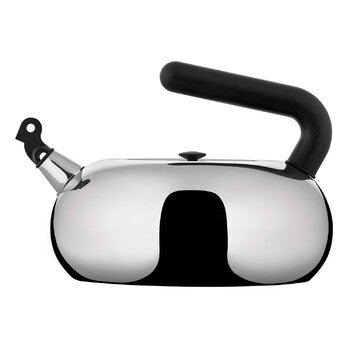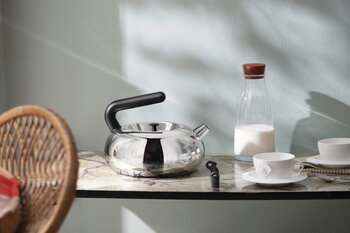Alessi's Bulbul kettle, designed by Achille Castiglioni, is a great example of the legendary Italian designer's ability to translate the qualities and functionalities of objects to something completely different. Bulbul boasts an unusual oval shape and an innovative handle that you may recognize from winter sports: the design was inspired by curling stones. The kettle is suitable for all hobs, including induction stoves.
The Bulbul kettle is part of the Alessi Values Collection, launched to celebrate the centennial of the famous Italian design house. The seventh part of the collection is called Irony, which refers to the playful side of design and the brand's aim of not taking itself too seriously.
